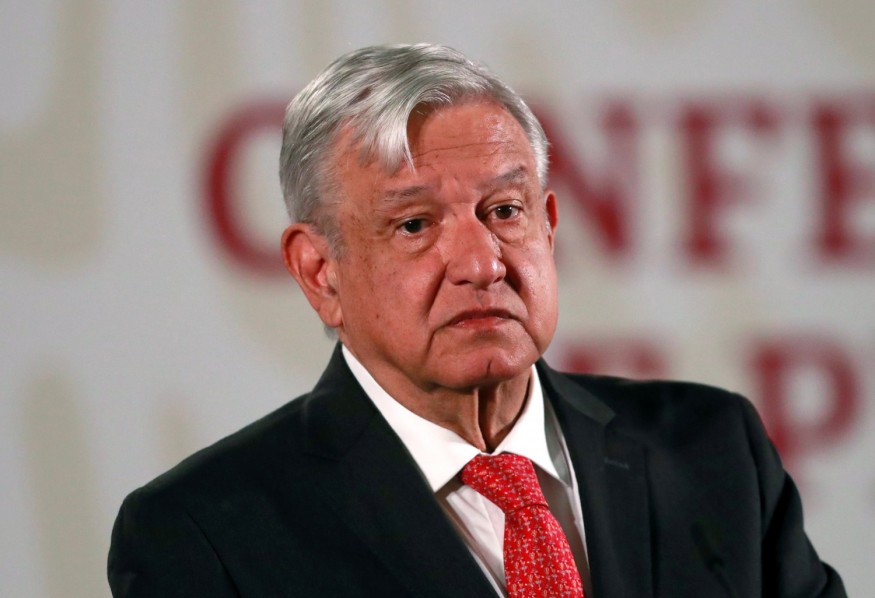Lopez Obrador and the Price of the Pandemic

Apart from the surge of COVID-19 cases, the country is already facing, Mexico still needs to address the pre-existing economic recession. At this rate, Mexico's Treasury predicted the economy would go down by 3.9%, but even this is a mild estimate.
In a speech on March 16, Mexico President Andrés Manuel Lopez Obrador promised to withdraw over $16 billion from the public trusts and budget stabilization fund.
This move is in hopes of reducing public debt and also to avoid giving corporations tax breaks, which private analysts have predicted to reduce the country's GDP by 4 - 12 percent. Last week, he confirmed that the plan is in motion.
Mexico's stagnant economy is being planned by its president to launch too many projects at once immediately after the pandemic is expected to be over.
Critics argue that the direction of the funds must instead go to the debilitating health sector, which is struggling to meet increasing demands.
Price to Pay
Much of the value of Mexico's currency has lost a significant margin. Now at roughly 25 to the U.S. dollar, the Mexican peso is second to the Japanese yen as the most depreciated currency.
Economist Gabriela Siller from Banco Base claimed this was partly due to the choice of Mexico's administration to undermine the seriousness of the pandemic and fail to come up with a plan of countermeasures.
Siller adds, "The exchange rate reacted because, without counter-cyclical fiscal policy, there is no way to lessen the coronavirus' hit on the economy."
Possibly the most significant economic concern Mexico must address is how to support small and medium-sized businesses like restaurants and retail stores, which account for 52 percent of the GDP in the country, within the coming months of the pandemic.
"The neo-liberal model is crashing down, and coronavirus only made an already doomed model to come down even faster," Lopez Obrador said.
He added that the administration would seek to expand social programs by creating 2 million jobs by creating direct subsidies for low-income workers. He adds that finances will also move to the state-owned oil company to lift debts. His speech last week included infrastructure projects for a new airport, oil refinery, and a train.
One of the measures Lopez Obrador planned on arranging had been to raise the living standards of low-income citizens. He said this would be done by promising them employment in the upcoming construction projects the administration was planning in the coming months.
Check these out!
'It's Just a Flu': Bolsonaro's COVID-19 Dismissal Putting Brazil In Danger, Experts Say
Online Petition Calling for WHO Director-General's Resignation Nears 1 Million Signatures
After Missing for More Than a Week, Mexican Journalist Was Found Beheaded at Seaside Resort
Easier Said Than Done
Director of the Mexican Institute for Competitiveness Manuel Molano left no reservations for reactions towards Lopez Obrador, who he said was detached from the drastic effects of the pandemic.
Molano says that to respond efficiently to the crisis, Lopez Obrador needs to take a good look at how the coronavirus outbreak affects the country from a global perspective since the administration appears not fully to understand the magnitude of the crisis.
He stated the implication of the government's lack of real comprehension of the economy is "not understanding the tie between the person selling food on the corner and the person who works in a factory and buys that food."
He is referring to when Lopez Obrador promised 2 million jobs in the coming months. Molano continued explaining that small to medium-sized businesses need more support than ever to lift Mexico from debt.
Molano estimated more than 1.5 million people would either become underemployed, earning less than they work for or unemployed, losing jobs entirely.
While it seems sensible to provide $100 to low-income families, they will likely use that money to pay their debt rather than to contribute to countering the expanding recession.
Subscribe to Latin Post!
Sign up for our free newsletter for the Latest coverage!
© 2025 Latin Post. All rights reserved. Do not reproduce without permission.













